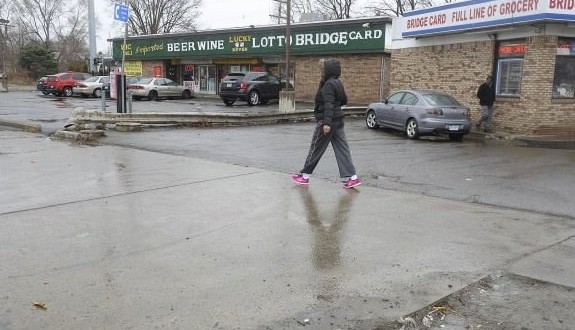Almost one week has passed since the brutal attack of a driver in Detroit who stopped to help a little boy he had accidentally just hit with his car.
In a bankrupt city with too few police, authorities are working fast to bring justice. Three people have been charged with assault – two adults and one teenager. A second teenager is in custody awaiting charges.
Police are still seeking several others to answer for the crime the city’s mayor has called “senseless”.
As many as 10 – 12 people are believed to have participated in the beating while dozens of others stood by and watched – saying nothing, doing nothing.
Except one.
Utash remained in a medically induced coma Sunday as donations poured in to help pay for his medical expenses, said family members. Utash did not have health insurance and suffered severe injuries. More than $101,000 had been raised as of Sunday night.
Utash’s daughters, Mandi Emerick and Felicia Utash, said the family is overwhelmed and grateful for the support coming from thousands of strangers.
Simmons was one of several Detroit-area clergy who announced Sunday that they will be donating money to help Utash and his family with his medical bills. The church is in a struggling area and hasn’t yet raised money to finish basic repairs from a fire five years ago, but Simmons said it’s important for them to show they care for Utash.
In addition, Simmons told his congregation to perform what he called “random acts of kindness” every day. It can be something as little as a smile to a clerk while shopping or hugging a stranger.
“We aren’t going to be silent anymore,” Simmons said inside the small church. “We’re not accustomed to seeing kindness. … In the midst of all this anger, we’re going to lift the spirit of Christ.”
Some have made the beating of Utash into a story about race — Utash is white, his alleged assailants presumably black — but African-American pastors said it may have more to do with an anger that comes out of fear and hopelessness amid high unemployment and a changing economy.
“People are so enraged, so frustrated,” said Simmons’ wife, Betty Simmons. “There’s a despair.”
At Greater St. Matthew Baptist Church in Highland Park, Mich., the Rev. David Alexander Bullock echoed those views during his Sunday sermon. Bullock said he cited a Bible parable from John 9 where Jesus talks with his disciples about the reasons why a blind man is blind, referring to the men who attacked Utash as morally blind.
“It’s the responsibility of the faith community to engage those who are blind, in this case, a mob of young men who don’t see clearly, who flew into a rage,” said Bullock. “They’re spiritually blind.”
“We can’t stand idly by,” Bullock said. “We have to engage them.”
Bullock said his church will donate $1,000 to the Utash family to help with medical expenses.
“This is an opportunity for us to do God’s work,” Bullock said.
The Rev. Maurice Rudd, pastor of Greater Mount Tabor Church in Detroit, also raised an offering Sunday and spoke about the beating.
“We’re a predominantly black church and Mr. Utash is white, but love is universal,” said Rudd. “There are no boundaries to love. Love crosses all racial barriers, all levels of class. That’s what being a Christian is really about.”
In his sermon, Simmons talked about a changing culture that is hurting the region.
“There is something in the spirit in southeast Michigan,” he said. “The spirit of violence … has infected our people.”
Despite that, Simmons and his congregants said they and others are working in small ways to improve the mood and climate. Over the last year, they have worked to board up homes around the church in partnership with companies. And they hope to reach even the type of people who beat up Utash.
“That anger comes from fear” rooted in a lack of hope, said Charles Weems, 60, a member of Baber Memorial A.M.E. Church. “You have to look at the environment they’re in.”
“Instead of pointing fingers” at people in tough circumstances, “we’ll walk in love” and try to use kindness to help people, Weems said.
Agencies/Canadajournal
 Canada Journal – News of the World Articles and videos to bring you the biggest Canadian news stories from across the country every day
Canada Journal – News of the World Articles and videos to bring you the biggest Canadian news stories from across the country every day



